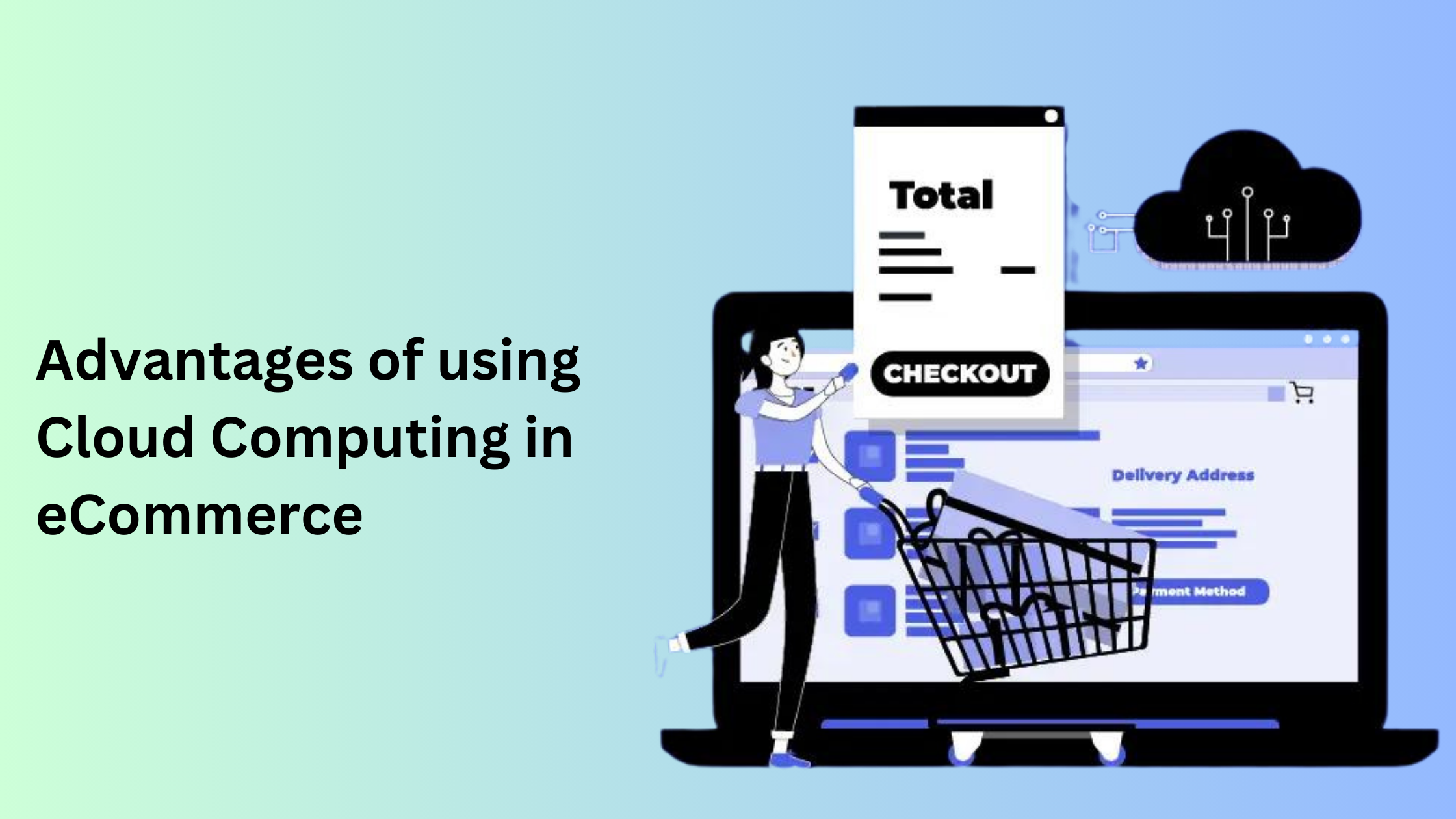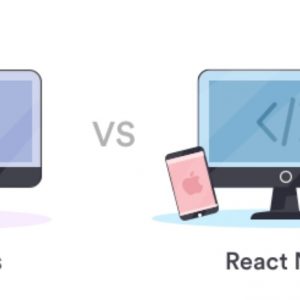The oversaturated eCommerce market determines its competitiveness. Minor errors and delays can now cost thousands of dollars and immobilize your organization. This emphasizes business owners need to be adaptable, knowledgeable, and aware of the latest innovations to capitalize on them.
Retailers take various actions, such as creating a headless commerce structure, to prepare their websites for increased customer demand. A trusted cloud consulting company can help you leverage the fullest potential of cloud computing. This blog is a quick read emphasizing the advantages of cloud computing in eCommerce.

What is Cloud Computing?
Cloud computing is a computing paradigm incorporating the distribution of various computing services via the internet, such as storage, servers, databases, networking, software, etc. Cloud computing allows customers to access and use resources and programs hosted by third-party providers online rather than own physical hardware or run software applications on personal PCs or local servers.
Key Components of Cloud Computing
1. Infrastructure as a Service (IaaS)
IaaS provides virtualized computing resources over the internet. It includes components like virtual machines, storage, and networking resources. Users have control over operating systems, storage, and deployed applications but do not manage the underlying infrastructure.
2. Platform as a Service (PaaS)
PaaS offers a platform allowing customers to develop, run, and manage applications without dealing with the complexities of infrastructure management. It provides a framework for developers to build, test, and deploy applications without worrying about the underlying hardware or software infrastructure.
3. Software as a Service (SaaS)
It is a subscription based software delivery system. Users access the applications via a web browser without installing or maintaining the software. Examples include email services, customer relationship management (CRM) tools, and office productivity suites.
4. Cloud Storage
Cloud storage provides scalable and flexible storage solutions over the internet. It enables users to store and retrieve data from remote servers, offering features like data redundancy, accessibility, and scalability.
5. Networking
Cloud Networking involves the infrastructure and services that facilitate communication and connectivity between various components and users within the cloud environment. It includes virtual networks, load balancers, firewalls, and other networking tools.
6. Virtualization
Virtualization is a fundamental technology that enables the creation of virtual instances of computing resources, such as servers, storage, or networks. It allows multiple virtual environments to run on a single physical machine, optimizing resource utilization.
7. APIs (Application Programming Interfaces)
APIs act as the interface between different software applications, enabling them to communicate and interact with each other. They facilitate the integration of different services and applications within the cloud environment.
8. Security and Compliance
Security measures are integral components of Cloud Computing, including encryption, identity and access management (IAM), and compliance tools. These ensure data protection, privacy, and adherence to industry regulations.
9. Monitoring and Management Tools
Cloud providers offer various tools and services for monitoring, managing, and optimizing the performance of resources within the cloud environment. These tools help in resource utilization, cost management, and performance optimization.
Top Cloud Hosting Platforms
1. Amazon Web Services (AWS)
AWS is a leading cloud provider offering many services, including computing power, storage options, and networking capabilities. It provides services like Amazon EC2 (Elastic Compute Cloud), S3 (Simple Storage Service), RDS (Relational Database Service), and many more. AWS has a global presence is known for its scalability and extensive service offerings.
2. Microsoft Azure
Microsoft Azure provides comprehensive cloud services, including computing, analytics, storage, and networking. It offers Azure Virtual Machines, Azure Blob Storage, Azure SQL Database, and Azure Kubernetes Service. Also known for its integration with Microsoft products and services.
3. Google Cloud Platform (GCP)
GCP offers a cloud computing suite encompassing computing, storage, databases, machine learning, and more. Services like Compute Engine, Cloud Storage, BigQuery, and Google Kubernetes Engine are part of GCP. It’s recognized for its data analytics and machine learning capabilities.
Impact of Cloud Computing in eCommerce
E-commerce and cloud computing coexist well since both require efficient customer service and data management. In the e-commerce sector, managing data and client engagement effectively is essential, and cloud computing provides a dependable platform to handle these aspects.
It assists online organizations in adjusting resources by demand through integrated business processes, guaranteeing smooth client experiences and streamlined operations. Cloud systems, for example, may host websites, handle large volumes of traffic during periods of strong sales, protect client information, and provide analytical insights for business expansion. These are all essential to an online business’s success.
Furthermore, by removing regional restrictions, cloud computing makes it easier for e-commerce companies to expand internationally. It offers a global infrastructure that guarantees speedy digital content delivery, enhancing user experience everywhere. Additionally, providing backup and disaster recovery solutions guarantees business continuity, fostering client loyalty and trust, which are critical to an e-commerce business’s success.
Pros of Cloud Computing in Retail & Commerce
Improved Security
Cloud providers offer a greater level of security than most e-commerce enterprises could afford on their own because they heavily spend in safeguarding their data centers and data. This can support both PCI-DSS compliance and consumer data protection.
Cost-effectiveness
Compared to traditional on-premise solutions, e-commerce enterprises can lower their IT costs by adopting a pay-per-use approach, which allows them to only pay for the resources they really utilize.
Scalability
E-commerce companies may simply scale their resources up or down as needed with cloud computing, eliminating the need to make extra hardware or infrastructure investments. This is so that companies may concentrate on their primary business activities while the cloud provider manages the infrastructure and scaling.
Increased Agility
E-commerce companies may quickly adapt to shifting consumer demands and market conditions by implementing innovative cloud services and solutions. This might assist companies in meeting evolving client demands and staying one step ahead of the competition.
From a technical standpoint, cloud computing offers the following advantages to e-commerce companies:
Virtualization
Cloud computing allows several virtual servers to function on a single physical server, boosting the efficiency of IT resources and lowering expenses.
Automation
Businesses can use it to automate repetitive IT processes, such as software deployment and server provisioning, freeing up IT staff time for more strategic endeavors.
Microservices Architecture
Microservices—small, independently deployable parts of an application—can be utilized with cloud computing. This reduces risk and enables speedy updates and feature deployment.
Global Delivery
The technology enables the delivery of e-commerce services and applications from data centers across the globe, giving clients fast and dependable access.
To Sum Up
The emergence of cloud computing has fundamentally changed the way e-commerce companies operate, and its effects will continue to determine the sector’s future. Unquestionably, cloud computing will have a significant and lasting impact on e-commerce. A wide range of advantages, including enhanced security, cost-effectiveness, and agility, are provided by cloud computing to e-commerce enterprises, enabling them to prosper in a dynamic marketplace.
Companies offering eCommerce app development services can help you utilize cloud capabilities as per your requirements. With the cloud’s global reach and the capacity to analyze large data and personalize marketing campaigns, e-commerce enterprises have more chances than ever to expand their client base and fuel growth.





